
by admin | Apr 28, 2020 | Blog
How to Survive Being Quarantined with Your Kids during Corona Virus or Natural Disaster
by admin | Mar 10, 2020 | Uncategorized
With massive numbers of school closures beginning across the county, it’s important to have a plan. Most kids and their parents are not accustomed to 24/7 exposure for weeks on end. Here are some ways to get through with your sanity and even how to enjoy it.
Do School for set limited hours. Most children attend school for seven hours a day, but it really doesn’t take that long to learn the material. When working with children one-on-one they can learn much faster. Plan a few hours (2-3 for young kids, 3-4 for teens) a day to work on schoolwork and schedule it into the day. Have that time remain consistent and don’t negotiate this. If you have a non-negotiable time kids might fuss at first but eventually, when they realize there is nothing else happening until the work is done, they will get going.
Don’t recreate the wheel. There are millions of useful resources available online right now. You don’t have to have a lesson plan or become a teacher yourself. Most likely schools will offer guidance. But if not, there is Khan academy, Common Sense Media and loads of resources available by simply googling.
Be creative in how school gets done. School at home isn’t just about homework. Show documentaries, read books aloud, discuss news articles, download some audible books related to what your kids are learning in school. Whatever you do, think about how to make this enjoyable for your children and for you.
Break the rules. Living together, under one roof, in sometimes small areas, can be stressful. Be willing to change some of the rules to help everyone get along and find something to do. Have a picnic or a camp out. Make a fort and don’t bother cleaning it up. Have dinner with a movie (even every night). Bake a ridiculous amount of sweets and eat them. Play games for hours. Binge watch a show (but do it together). Sometimes keeping order is about breaking the rules in favor of fun and survival.
Don’t break all the rules. Chaos ensues pretty quickly when all rules are thrown out the window. Keep some semblance of order by having some rules that cannot be negotiated or changed. For example, keep up with bedtimes and wake times. Don’t allow phones and computers at all hours in the bedrooms. Limit screen time reasonably. Have mealtimes rather than everyone takes food whenever and wherever. Find what works for your family and stick to it.
Ignore It!. One of a parent’s best defenses against poor behavior is to ignore it. Yes, sometimes things get better when we do nothing. It’s amazing, very freeing and it works. I wrote a whole book about this. But here’s the primer: Not every behavior has to be disciplined and sometimes giving it attention only makes it happen more often. Life at home in a quarantine is hard enough. Be willing to look the other way, let some small stuff go and ignore anything annoying. There’s no benefit to discussing every behavior and there is a gigantic one to avoiding it. Trust me on this. You can read all about Ignore It! here and here.
Separate. Too much together time is just, well, too much. Have breaks in the day when everyone goes to their own corner. Consider it rest hour. Read. Try to break a Guinness Book of World Records. Write letters. Paint. Sew. Make a movie. Work. Build LEGO. It doesn’t matter what people are doing during that time, just do it alone.
Disconnect, a little. There will be the temptation to check Facebook and email continuously to stay connected. That will be important. But too much of that will have diminishing returns. Have time in the day when devices are banned, for everyone (parents, I’m looking at you).
Find the fun and funny. There will be a lot of ridiculous moments when so much time is spent together at home. You will have to laugh or you will scream. Find the funny. Write it down. Share it with friends. Be silly in ways you aren’t normally. It will make this time more memorable and so much more tolerable.
Share the load. Being homebound means finding ways to share to chores. Assign every member of the house a workload. This isn’t permanent but everyone needs to pitch in. Here are some ideas to get you started. If there is another adult in the house, have a meeting to divvy up the work what children cannot do. This will help with resentment and also not burdening one family member.
Say thank you. Sometimes we forget our manners. This isn’t the time for that. Thank your kids for helping out and doing their homework. Thank your neighbors for leaving food at your door. Thank your partner for supporting you. Thank your employer for letting you work from home. You get the idea. Thank you goes a very very long way in keeping the peace and making everyone feel appreciated.
by admin | Nov 17, 2019 | Blog

During the holiday season, we all tend to give a lot to our family, our friends, maybe our neighbors and our coworkers. That’s all good. But the thing is there are lots of people who don’t enjoy this time of year. It’s expensive. It can be extraordinarily lonely. It is often stressful with all the shopping and parties and planning. And there tends to be more depression and anxiety than other times of the year.
There is so much we can all do to help others as we would help our inner circle. And maybe doing it for a stranger will make that act more meaningful. With the holidays approaching, I’m ready to get back into giving business. I want to see if you will join me.
It’s been six months since I donated my left kidney to a man I’d never met. I feel great, and my tests show my one kidney is working as well as ever. Every morning when I look at my scars, I’m filled with the greatest satisfaction I’ve known in my life.
After I donated, I received an outpouring of supportive messages. It was completely unexpected and in a way that was what made them even sweeter. What struck me the most is how meaningful my donation was to other people. Many messages said some version of:
“My faith in humanity is restored”
“This story gives me hope”
“This is what we need in a world filled with so much anger and sadness.”
It wasn’t that I donated my kidney that was meaningful to most people. It was that I did it for a complete stranger.

A few years ago I read about a study that divided people into two groups. Both groups were asked to rate their happiness. Then they were given an envelope with either $5 or $20. One group was asked to spend the money that day on something for themselves. The other group was asked to spend it on someone else or donate it to charity. At the end of the day both groups were asked to rate their happiness again. Who would you predict was happier?
The people who gave the money away were happier. It didn’t matter if the participants were given the $5 or the $20. Giving it away just made people feel good regardless of how much was.
This study taught me two very important lessons.
- Giving also helps the giver and there’s nothing wrong with that.
- Giving in small ways is just as good as big gestures.
In 2015, inspired by this experiment I decided to buy 20 $5 Starbucks gift cards and hand them out in a Target parking lot. The whole family joined in. I wanted my kids to feel the gift of giving even though it wasn’t their money. We all took a stack and wrote messages on the envelopes. Then we walked around the parking lot distributing our cards. I remember my husband walked past a car with two young women waiting to park. He handed one a gift card. She was incredulous and frankly, she was suspicious. She wanted to know why he was giving her the card. After explaining there was no reason, she was visibly shocked and elated. He gave another card to the passenger. There was a mom putting a baby and her packages into the card. I recall the exhaustion of those days well. We slipped a card silently onto the baby’s empty car seat and walked away.
Though we were a sample of only four, we can completely validate the results of the study. Once on a road trip someone treated our family to a meal. We never saw them. They just paid the bill. I almost cried. I wondered why they picked us. We immediately paid for someone else’s meal and walked out doubly happy. Giving and receiving feels good. We should do it more.
Now comes the big ask. For the next three months let’s make the world a better place by being nice to strangers. I mean make an actual concerted effort every day to do something nice for someone outside of your friends and family. Go big or small. Spend money or don’t. All you have to do is find ways every day to do something nice for a stranger until Valentine’s day.
Why stretch this giving thing way past the holidays? Because lots of people help out during the Thanksgiving to Christmas stretch. But often people feel more alone in the dark days of January and February. Valentine’s day stinks for a large portion of the country. So, let’s do this all the way until the promise of Spring is upon us.
I’m going to be using the hashtag #strangerkindness to keep track of our good deeds. There is no need to let me know if you’d rather stay private about your good works. But I’d love to see if we could log 1,000 acts of stranger kindness by 2/14/2020. If you use the hashtag and tag me on Instagram or Facebook or Twitter, I’ll count it. My dream would be for this effort to spread far and wide to everyone you know and all the people we don’t. So if you feel comfortable, please share this campaign.
What do I get out of this deal? I get to feel warm fuzzies on a regular basis knowing people are out there being kind to each other. Selfish? Sure. But we will also do lots of good so what’s so wrong with that?
Below is a list of my favorite ways to make a stranger’s day. Some cost money. Many don’t. If you’ve got more ideas, let me know. I’ll add them to the list. Thank you for reading this far and considering being kind to a stranger.
* Give someone a smile and ask how his/her day is going
* Offer a compliment
* Treat the next person in line at Starbucks or Dunkin Donuts to a free drink (this is my husband’s favorite)
* Buy gift cards to CVS, Bed, Bath and Beyond and Target to keep in your car. If you see a person who might benefit from a card, give it.
* Become an organ donor (donating at the time of death can save up to 8 lives)
* Go to your local nursing home and ask to visit with someone who doesn’t receive many guests
* Make a cake and deliver it to a neighbor you don’t know
* Bake cookies for a local soup kitchen
* Donate fruit growing on your trees or help pick for someone else’s fruit that would be wasted
* Go serve or volunteer at a shelter or food pantry
* Offer a kind word to a parent of a screaming baby on an airplane and/or offer to help.
* Read to kids or teach English to second language learners at your local library
* Buy stamps and stand at the post office offering them to people
*Give blood through the Red Cross
* Let someone have the parking space you are waiting for
* Let someone go ahead of you at the supermarket
* Take back someone’s shopping cart for them
* Write a kind note to someone’s boss about the good work they are doing (this is really meaningful in the service industry)
* Teach an elderly person to use a cell phone or computer
* Pay for someone’s gas at the station
* Share your umbrella
* Buy extra movie tickets and pass them out
* Tell a parent in the middle of dealing with toddler meltdown “You are doing a good job.”
* Offer to get a snack or treat for someone working overtime at the hospital
* Make cards for to thank veterans for their service
* Call a dialysis center and offer to decorate or even throw a party for people receiving treatment
* Offer to babysit for a single parent or any parent
* Go to a nursing home and offer to give manicures for the resident
* If you see someone having a hard day, ask if they could use a hug
* Go to a LGBT center and offer to be an adoptive parent for someone whose own parents have disowned them.
* Hold the door open for people
* Leave tampons or pads or condoms in a public bathroom with a sign saying “take one if you need one”
* When it snows go around an shovel/plow someone’s driveway for them
Please share this post.
by admin | Oct 25, 2019 | Blog
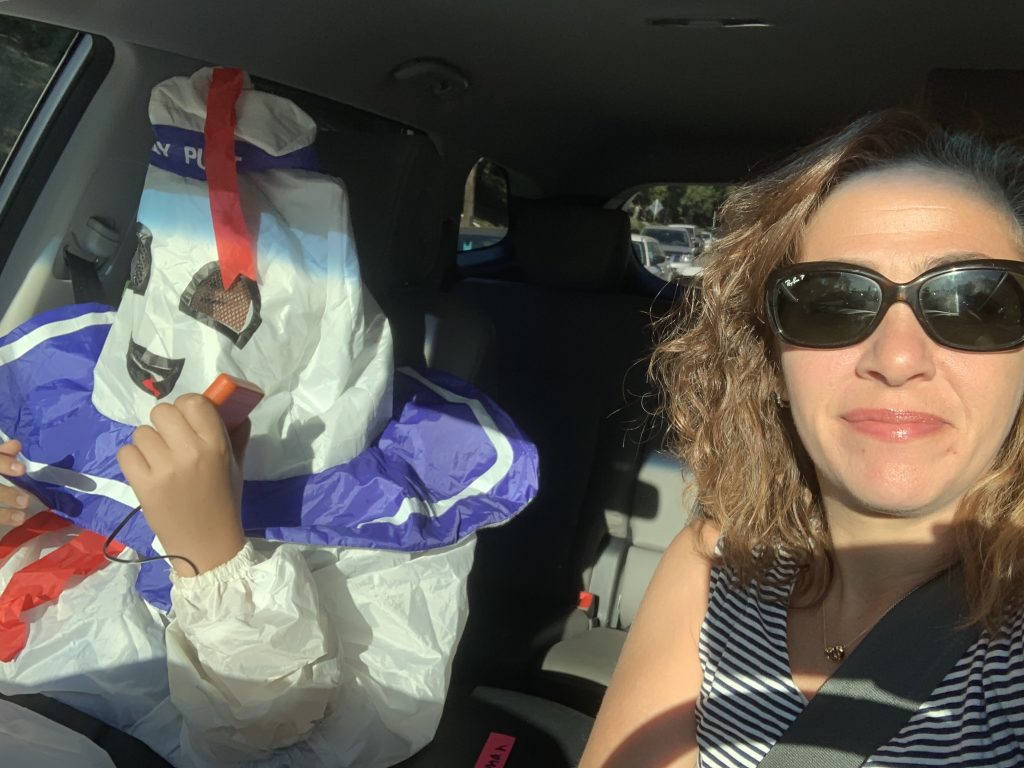
Lately I’m considerably more conscientious about preparing my children to successfully launch into adult life. Maybe that’s because my children are 13- and 16-years old and college is around the corner. Maybe it’s because I’ve seen in my practice and in the literature that young people are just not as ready for real life when they leave for college or start work. When I grew up, adulting wasn’t even a word, now the lack of it is an epidemic and a syndrome (check out this fascinating look at the rise of the actual term adulting.).
A few years ago, I saw Julie Lythcott-Haims speak to a large group of teens and parents. I read her book (How to Raise an Adult: Break Free of the Overparenting Trap and Prepare Your Kid for Success), and I consider myself fairly up to date on parenting and child development. But during her talk, Haims said something that resonated so deeply. She said, “Our job as parents is to put ourselves out of a job.” That was it. So simple. It was like being hit over the head with a cast-iron frying pan and suddenly, my mindset shifted.
Around the same time when I was writing Ignore It!: How Selectively Looking the Other Way can Decrease Behavioral Problems and Increase Parenting Satisfaction I stumbled across a flyer from the Catholic High School for Boys in Little Rock. It reads “If you are dropping off your son’s forgotten lunch, books, homework, equipment, etc., please TURN AROUND and exit the building. Your son will learn to problem-solve in your absence.” Yes, Yes, Yes!!! The universe was telling me (and every other parent) that something had to change. We’ve got to stop enabling our kids to sit back and have their parents solve their problems.
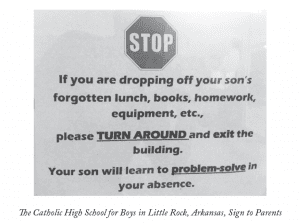 With my parenting brain realigned I understood there were lots of things I was doing for my children that needed to stop. Out was checking up to see if they did their homework. Out was making sure the gym uniform was washed, dried and returned in the backpack. Out was cooking every morsel of food that was to be put into their mouths. Additionally, I made sure to give the kids several chores in the house that they were required to do on a daily basis. When my kids instinctively ask for help opening a cheese stick (yes 13- and 16-year-olds still ask this) or how to spell astronaut I now tell them to figure it out.
With my parenting brain realigned I understood there were lots of things I was doing for my children that needed to stop. Out was checking up to see if they did their homework. Out was making sure the gym uniform was washed, dried and returned in the backpack. Out was cooking every morsel of food that was to be put into their mouths. Additionally, I made sure to give the kids several chores in the house that they were required to do on a daily basis. When my kids instinctively ask for help opening a cheese stick (yes 13- and 16-year-olds still ask this) or how to spell astronaut I now tell them to figure it out.
With Haims’ phrase and the Catholic school’s flyer in mind I’ve mostly avoided overparenting. Recently a teacher approached my high schooler to say, “Your mother sent me an email about your grades. Let’s talk after class.” My daughter looked at the teacher and said with complete confidence, “There’s no way my mother sent you an email.” She was 100% correct. There was absolutely no way I would send an email to my daughter’s teacher about her work or grades. I would have recommended my child email the teacher directly if he/she wanted to get some extra help. If the child chose not to get the help, then that child would have to deal with the consequences of not be prepared for the next test. Turns out the teacher was speaking with the wrong student.
And so it’s been going until I was forced to decide how far this adult preparation was going to go. This morning I allowed my son to miss his bus so we could have breakfast out together before school. This is normally my husband’s weekly special time with my son but in his absence this week I took over. I was planning on dropping my son at 8:30 am and meeting a colleague at 9 o’clock. Everything was going perfectly. We were enjoying each other’s company. We were discussing life and important topics over a chocolate almond croissant. When I mentioned the Say No to Drugs Red Ribbon Week campaign at school my son looked up in a panic and said, “There’s a Halloween costume contest at lunch today.” At 8:11 he’s realized that he did not have a costume. He forgot. Now I’m faced with a choice. We are two minutes from school and at least 10 minutes from home. We really didn’t have time to get his costume and for me to meet my coworker without being late. Morosely, we got up and ambled to the car.
On the way there I’m muttering about how we really don’t have time for this. My son is muttering as well. He’s saying, “It’s ok. We don’t have to get it.” But my heart is breaking. He’s such a good kid on all fronts. He’s generally responsible. He does take the dog out and empty the dishwasher with a minimum amount of complaining. He’s self-directed and above all, I know he would go out of his way to help me in an emergency. It all comes down to one question: Is this one of those times I should not rescue him and let him suffer the consequences for forgetting something?
I don’t want this question. I just want to enjoy my breakfast with him, drop him off and arrive on time to my next appointment. And I really really don’t not want to reinforce any kind of disorganization. However, I looked at the kid in front of me. He absolutely loves Halloween. School is mostly boring and lame, and this is one of the fun days (even if it has nothing to do with actually preventing drug use). Do I want him to miss it because I have a principle to uphold?
It turns out that I didn’t. More than I wanted to teach him a lesson, I wanted him to have his costume today. I’ve taught him many lessons, and I will continue to do so. But I realized there isn’t an all or nothing in this parenting gig. Consistency and following through are important. I made a video on this exact topic yesterday. But there are times that instead of being the parent I need to be a human being who has empathy for another human in distress. I’ve had plenty of moments when I’ve frantically called my husband because I’ve forgotten something important. It happens to the most organized among us.
So, I quickly turned the car around and started driving toward home. If this were the 10th time my son forgot something for school this would have turned out differently. But it wasn’t. It was the first. My son and I said nothing for a few blocks, and then he said, “I think we can make it.” We caught every green light on the way home, and I took the toll road (expensive but fastest route) on the way back to school. Because my son knows that I don’t normally rescue him if he forgets something, he was unusually grateful. A block from school he rushed out of the car flashing a smile. I rushed back to the highway.
I arrived at exactly 9 o’clock on the dot. My son was right. We both made it. Still thinking about if I made the right choice, I looked down at the floor of the passenger seat to see my son’s pencil case laying there. In his rush to get his costume on in the car he must have dropped it. I will not be dropping them back at school.
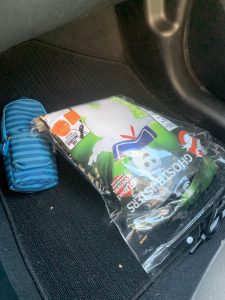
by admin | Oct 21, 2019 | Blog
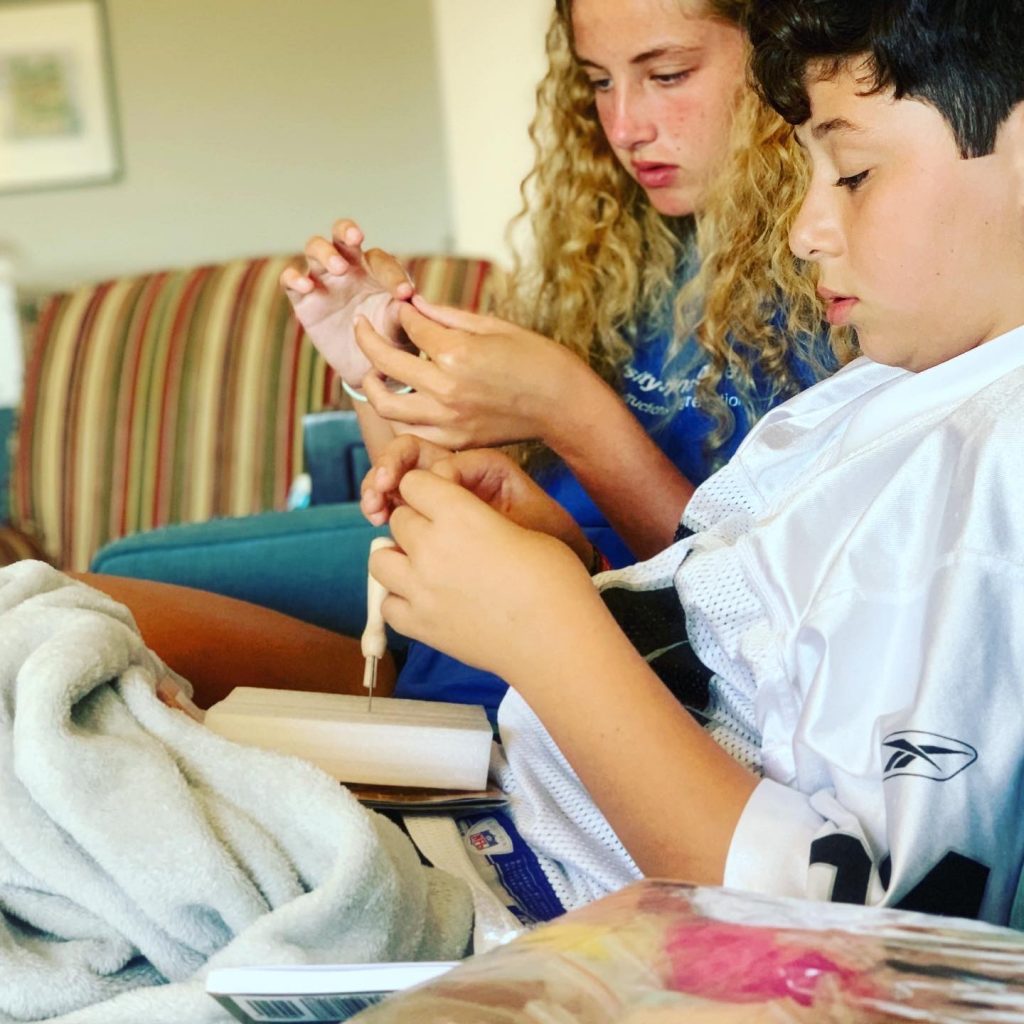
Google the word “teenagers” and a plethora of How to Survive Your Teenagers articles will appear. The memes and GIFs are endless. Sometimes they are funny (really funny). But mostly they just drive home the point that teens are unbearable beings that have no manners, roll their eyes in disgust and treat their parents without respect or consideration. As a family coach I know for sure that this is often the case, or at least it feels this way. However, when teens are consistently seen and portrayed as demons that is pretty much all many parents can see.
I don’t find demons in my house. My kids friends are not demons and neither are any teens I’ve met (and I’ve met some really tough kids as a social worker). When I see young people, I see promise. I see possibility. I see the future. In an effort to rebrand kids ages 13 to 19, here’s an ode to all that’s good about parenting teenagers.
Teen are funny. Teens are known to be a bit impulsive. What’s so great about that is they often say whatever comes to mind, and that can be insanely funny. They don’t have filters either. Also, funny! Don’t take your kids so seriously and you will start to see the funny.
Teens aren’t jaded. They aren’t bogged down by past experience, and they see the world as changeable. They think they can fix global warming. They think they can elect people who will care about gun violence. They think a better world is possible. For this, I’m eternally grateful because we need changemakers now more than ever.
Teens are sponges. They think they know it all but in reality, they don’t know all that much. It’s incredible watching kids suddenly make a connection from what they learn in school and real life. It’s adorable taking teens to try dumplings or roller skating for the first time. They have a zest for life when they give something new a chance. It reminds me of watching toddlers discover the world around them but on a much bigger scale.
Teens are savvy. They can figure out new technology before their parents can sign into their iPhone 7s. They have never known a card catalog or a AAA trip tic, and that’s amazing. We can learn a lot from our kids if we can get past the brief Mom-you-are-an-idiot-for-not-knowing-how-to-do-this moment. Being tech savvy also translates into figuring other stuff out too if teens are allowed to make mistakes and learn from them.
Teens do chores. Sure, younger kids can and should do chores. But teenagers can do them more competently and at a more advanced level. One of the best parts of my kids getting older is they can actually help me around the house. They take the dog out and empty the dishwasher. Both jobs I dislike. Teens who drive can also run to the drugstore for a prescription or the supermarket for items for dinner.
Teens are good company. If you can find just the right activity, kids are great companions. Look for a tv series or program, a music group or type of food where you can bond with your teen. What to do if you have nothing in common with your kids? Pretend. Find something your child enjoys and take an interest.
Teens are dedicated friends. Part of typical development is for teens to move their focus away from their home and parents. Their friends become vitally important, often to the dismay of their parents. But it’s fantastic to see the lengths teens will go for their friends. They bake them cakes. They rescue them even when it’s inconvenient. They stay up too late talking to them about every minute detail in life. This is all good practice for adult friendships, including transitioning to a different relationship with their parents.
by admin | Oct 5, 2019 | Blog
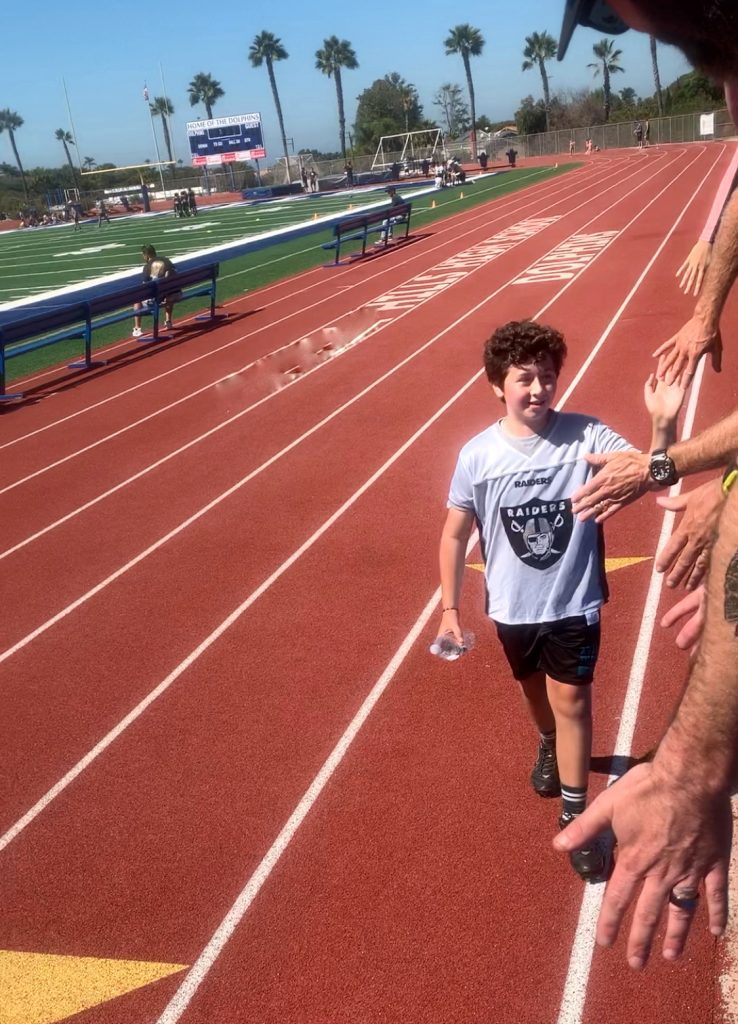
I love to watch my kids play sports. I love watching water polo. I love flag football. I love the fast pace of the basketball games. I even love the boring (sorry, it’s true) baseball games. I don’t care if my kids win. I don’t particularly care if they play that well. As a parent, what makes my day is watching my kids have fun. Sadly, there are almost always one or more parents who just suck the life out of the game. They seem to live or die by every play. They offer endless chirps of advice from the sidelines. None of it is actually helpful. Their kids clearly hate it. It’s the #1 reason kids stop playing sports by the age of 13.
My kids are not sports superstars. They are not getting a scholarship or even hoping to be a walk on somewhere. They get out there to exercise, have fun, and make friends. What I enjoy at my kids’ games is seeing them have a moment. Sometimes it’s making a great catch or scoring a goal or a touchdown. More often than not, it’s a moment that’s nearly imperceptible to every other spectator. It’s when my son knows he did his best, and he flashes us a little smile. It’s when my daughter gets aggressive with another player (totally normal in water polo), and we marvel at how far she’s come in the game.
Unlike the typical sideline sports parent debacle, today I got a glimpse of what sports could be like if all of the parents behaved themselves and enjoyed the game.
My 12-year-old son, Emmett, is in his last year of flag football. At the game today my husband and I noticed 10 dads who appeared to be having a party in the stands. It was like they had just come from the best tailgate and couldn’t wait to see the big game. But the big game was flag football for middle schoolers. Instead of heckling “helpful tips” to improve play, they shouted supportive sayings to every player. They laughed (a shockingly rare occurrence on the sidelines). They cheered. They did the wave.
At one point my son made an interception. The crowd went wild. Then Emmett did it again, but this time ran for a touchdown. The fun dads asked us his name. Then they started chanting “Emmett, Emmett, Emmett”. My son did the tiniest of celebration moves to acknowledge the crowd, and we all chuckled. This group of men made the game entertaining not only for the kids, but for the parents. It was pure joy, and I’m grateful that my son had the game of his life while these dads were around. Not for the glory. But because their enjoyment was contagious.
At the end of the game, the dads all lined up at the front of the bleachers and yelled for Emmett to come by for a round of high fives. Not one of these guys knew Emmett before the game. They treated him like the most coveted player ready to be drafted. Then they called over each boy on the team for their high fives. All of the boys went home with a smile.
My son is an average player with good heart. He’s never the center of the big play. He’s typically one of the last players in and he’s mostly ok with that. Today, these dads brought their A game to flag football and made my son’s year. I wish every kid could have a sports parent section like this at every single game. It certainly beats heckling our kids to do better. Thanks Dads!

These dads are the heroes of today’s flag football game





 With my parenting brain realigned I understood there were lots of things I was doing for my children that needed to stop. Out was checking up to see if they did their homework. Out was making sure the gym uniform was washed, dried and returned in the backpack. Out was cooking every morsel of food that was to be put into their mouths. Additionally, I made sure to give the kids several chores in the house that they were required to do on a daily basis. When my kids instinctively ask for help opening a cheese stick (yes 13- and 16-year-olds still ask this) or how to spell astronaut I now tell them to figure it out.
With my parenting brain realigned I understood there were lots of things I was doing for my children that needed to stop. Out was checking up to see if they did their homework. Out was making sure the gym uniform was washed, dried and returned in the backpack. Out was cooking every morsel of food that was to be put into their mouths. Additionally, I made sure to give the kids several chores in the house that they were required to do on a daily basis. When my kids instinctively ask for help opening a cheese stick (yes 13- and 16-year-olds still ask this) or how to spell astronaut I now tell them to figure it out.



